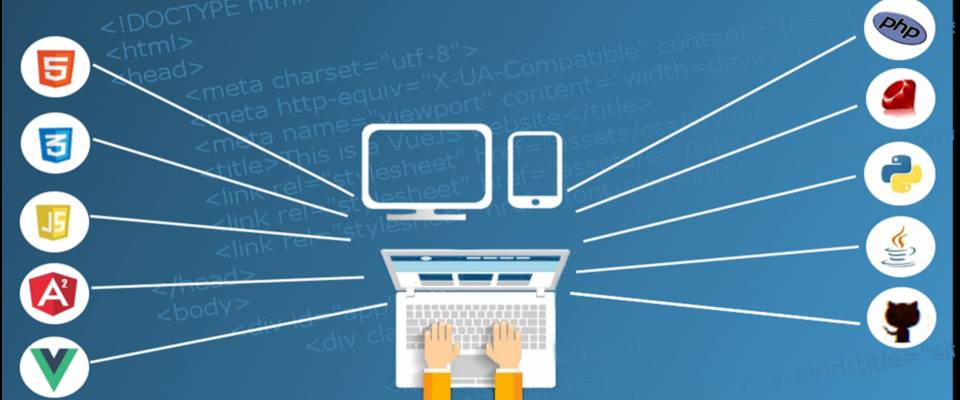A full stack developer is someone who can work on the development of all layers of an app or program. That means that they are familiar with both the front end and back end aspects of programming.
For example, full stack development would involve the development of the user interface, the middle layers that process data, and the back-end portions that connect to servers or databases. Companies are starting to prefer full stack developers, so they don’t have to hire specialists for each “layer” of the app and then spend a lot of time making it all work together. Here is how you become a full stack developer in 2018.
Learn All Aspects of Software Development
There are many web developers because you only have to deal with one aspect of the “stack”. Working as a full stack developer requires knowing not just the web but everything from front end to back end technologies.
This is much harder than learning JavaScript, HTML5, and maybe Java. You have to know the programming languages at all levels. You might not need to know machine code and C++, but everything above that will be relevant at some point. You need to understand user interfaces and user stories and app store installation scripts. You’ll need to understand how apps transfer data between layers, such as taking the user’s login information, validating their identity, and handing it off to a server. And you need to know how to do this without letting hackers get a hold of any of it.
Another subject to master is development frameworks and third-party libraries. You’ll save yourself a lot of time if you don’t have to reinvent the wheel, though the use of code created by others doesn’t eliminate the need to test and troubleshoot issues.
Find Your Niche
Yes, we just told you that you need to know everything about app development. One way to save your sanity is to specialize in one area. For example, you could elect to work on the development of apps for financial applications. Now, you only need to know about the databases used by banks and other financial institutions and the rules and regulations regarding financial privacy and IT security instead of healthcare privacy rules and restrictions on the collection of data.
If you only create games, you just need to know the major software languages used to develop and deliver games. If you’re creating apps for monitoring industrial systems or the internet of things, you only need to know the programming languages and data structures of that industry. However, until you learn how to troubleshoot apps, you’re only qualified to build basic apps and test them thoroughly until they work.
If you create apps only for engagement with an audience, such as an app for sharing someone’s podcasts and latest published videos, you don’t have to worry about banking regulations but can focus on social media engagement and streaming media tools.
The side benefit of specializing in a niche is that you’ll quickly develop a reputation for being a go-to person for that particular type of app.
Learn Troubleshooting
You’ve learned the basics of building apps. You’ve identified a niche. This requires getting experience, even if you’re building apps for a few clients and making them available to the general public for free so you can prove your skills. The next step is to learn how to troubleshoot.
People hire full stack developers for the simplicity; they want one-stop-shopping for their software development needs. They don’t want to hire a full stack developer and then have to find someone even more advanced to debug an app when data is transferred with errors, something is breached, or installation problems occur after a smartphone operating system update. This means learning how to troubleshoot apps and fix them.
One way to get this experience is working with an experienced full stack developer and learning how they find the root cause of problems. Another option is volunteering to debug other people’s apps. Yet another solution is to take classes in full stack development and learn how to use software tools to identify bugs, especially tools that help you fix the problems. Fortunately, institutions like General Assembly have programs that teach exactly this. You can find more information on their full stack development program at https://generalassemb.ly/coding/full-stack-web-development.
If you develop strong skills in troubleshooting apps and earn a reputation for it, you could be the person they call in to debug an existing app and be well paid for your efforts.
Conclusion
Full stack development is more challenging than specializing in one aspect of software development, though this is mediated by choosing to only create certain types of apps. The upside is a strong demand for your skill set by companies that want an all-in-one expert.

